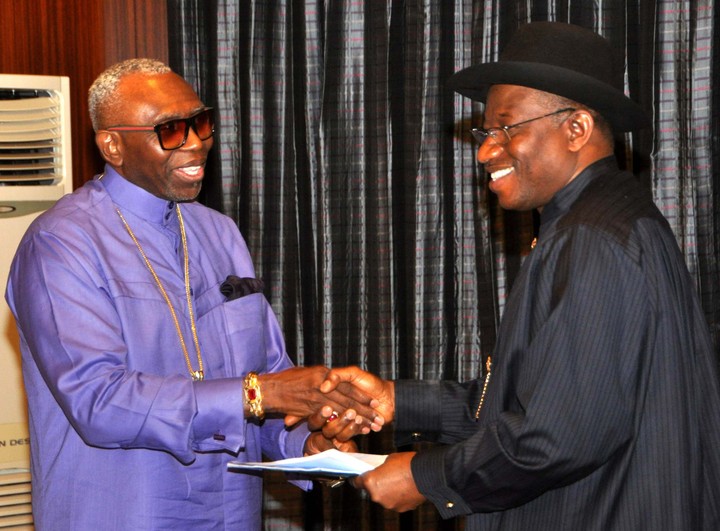
Investigators in South Africa have dismissed Nigerian government’s explanations of the purpose of the $9.3 million cash seized from two Nigerians and an Israeli as “flawed and riddled with discrepancies”. The suspects told South African authorities that the money was meant for the procurement of arms for Nigerian intelligence agencies.
Although various explanations about the money were given to the investigating officer, these explanations were flawed and riddled with discrepancies,” the South African prosecution agency said in a statement sent to this newspaper.
The jet used to ferry the money is owned by Ayo Oritsejafor, who heads the Christian Association of Nigeria, CAN.
Mr. Oritsejafor, a cleric, said he is not aware of the arms deal. He said although he owns the aircraft, it was managed by another company, Eagle Air Company, which in turn, leased the jet to a third party, Green Coast Produce Limited.
The Nigerian government in an unsigned statement, Tuesday, said it has provided South African authorities with documents and receipts to prove that the transaction was “legitimate.”
Nigerian security officials also said that it was normal practice to procure arms with cash.
“The Federal Government has submitted relevant data and documents on the transaction to South Africa and insisted that the transaction was legitimate. It also clarified that the funds were not laundered or smuggled for any covert manoeuvres. No launderer will be audacious to fly into a country in a chartered jet with such a huge cash,” a statement by PRNigeria, an agency that regularly disseminates media statements for the military, police and other security agencies in Nigeria explained.
The statement tallies with what top security officials told PREMIUM TIMES in confidence that the money was legit as the government decided to buy the arms secretly; because the U.S. government had allegedly blocked its efforts to buy arms openly.
However, the government’s explanation does not seem to be gaining traction with South African investigators as the Asset Forfeiture Unit, AFU, of the National Prosecuting Authority of South Africa, NPA, has obtained a court order to freeze the money.
The NPA, in a statement sent to PREMIUM TIMES Wednesday said that the manner which the money was brought into the country breached the country’s laws that deal with the transfer of foreign exchange of such proportion.
“The money was initially detained by the South African Revenue Service (SARS) as it was not disclosed or declared at customs, and was above the prescribed legal limit for the amount of cash that may be brought into the country,” it said in a statement.
Investigators also cast serious doubt on the Nigerian government’s explanation that the money was meant for the procurement of arms and that it has provided documents and receipt to back its legitimacy, raising serious concern that suspects might have been in the process of laundering the money before it was intercepted.
The NPA said its investigation shows that Tier One Services Group, the firm Nigerian government claimed it wanted to procure the arms from, is not authorised to sell or rent military hardware.
“In court papers, the NPA submitted evidence that Tier One is not registered with the National Conventional Arms Control Committee and is thus not authorised to enter into any agreements regarding the sale and/or rental ofmilitary equipment ,” the statement read.
Tier One has apparently issued an invoice to a Cyprus based company, ESD International Group Ltd, ESD, in respect of the procurement of armaments and helicopters to be delivered to Nigeria. However, South African investigators said the time when the invoice was prepared and the time the money was brought in threw up some serious issues of its true intent.
The money was ferried to South Africa less than a week from the date the invoice was prepared (September 8, 2014).
The involvement of a Cyprus based company also heightens the suspicion that this may be a case of classical money laundering. Cyprus is notorious for its secretive banking system, which attracts shady characters and corrupt politicians looking to dry-clean ill-gotten funds.
The NPA added that the transaction did not follow normal procedure in the procurement of the kind of equipment it was alleged to have been meant for.

No comments:
Post a Comment